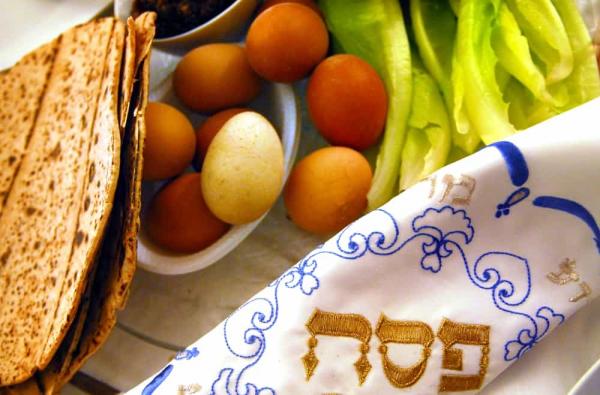
In several weeks, the Jewish community from around the world will celebrate the commencement of Passover, one of the oldest of the Jewish festivals. The celebration is held to honor God and remember His deliverance of the Israelites from the Egyptian pharaoh after 400 years of slavery. Pharaoh refused to free the Israelites, and God sent ten plagues to humble the Egyptians. The term "Passover" derives from the last plague, the night the destroying angel "passed over" all the doors that had been coated with lamb's blood, thereby protecting the first-born sons inside. It comes from the Hebrew word "pesah"or "pesakh" meaning to pass through, exempt, or spare.
In the Bible we read, "That ye shall say, it is the sacrifice of the Lord's passover, who passed over the houses of the children of Israel in Egypt." Later, we learn that the Israelites continue honor the event on the 14th day of the month. Today the feast is a time to commemorate the past and look to the future - the renewal of life each spring. Perhaps the most well-known feature of the weeklong observation is the "Seder," a family meal held on the first night.
The first step of the feast is a sanctification and blessing of the wine, followed by a washing of the hands. Next, a vegetable is dipped in salt water and eaten to represent the humble beginnings of the Jewish people. The fourth step includes breaking the unleavened bread, or "matzah", a symbol of the fleeing Israelites not having time to let their bread rise. Following the "breaking", the story is told from Exodus and the "bitter herbs"-usually horseradish-are sampled as a reminder of the bitterness of slavery. The meal is served, blessings are offered, and the door is opened to symbolically usher in the prophet Elijah of whom it was foretold would welcome the Messiah.
While I am not Jewish, I have been fortunate to participate in several "Seders". My first was when I was fifteen. I couldn't get over the fact that for the duration of Passover the Jewish population didn't eat bread, only "Matzah" (something I tried to do myself without much success.) On the second occasion, I remember finding the symbolism fascinating-the salty vegetables and bitter herbs. This last time I began to think about how I could apply what I was learning into my own life.
Whether Christian, Jewish, Buddhist or of any other denomination, religion, or practice, there are lessons to take away from every faith. For me, Passover represents the idea that while we may not need to worry anymore about physically being passed over, we very much need to take care spiritually. Perhaps there is no destroying angel outside our door, but there are other things that seek to do harm to our families and us. Certain types of entertainment, hurtful criticism and gossip, or acts of selfishness can tear a family apart. There are several ways to protect our families from modern "destroying angels", such as wholesome recreational activities, sitting down and eating dinner together, or simply giving hugs goodnight. The home should be a place where one can feel safe and protected.

